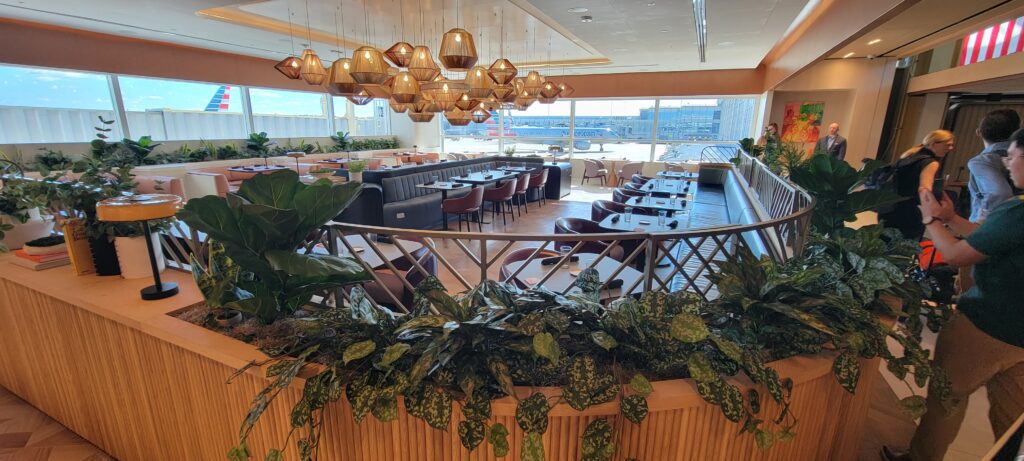American Express Uncovers The Most Disruptive Luxury Travel Trends That Will Redefine Tomorrow's Travel Experiences And Set New Standards - Travel And Tour World
Saturday, May 10, 2025

American Express has revealed a series of revolutionary global trends that are set to completely transform the luxury travel industry in 2025 and beyond. With insights gathered from its extensive research, the company highlights the powerful shifts in traveler behavior, including the rise of purpose-driven travel, immersive luxury experiences, and the increasing integration of cutting-edge technology like artificial intelligence in travel planning. These trends are reshaping the way hotels and resorts engage with guests, and hoteliers must adapt quickly to stay ahead of evolving demands. From the rise of bleisure travel to multi-generational vacations and AI-driven personalized experiences, American Express predicts that these bold shifts will redefine the future of luxury travel and set entirely new industry standards.
American Express, in collaboration with HSMAI Europe, has presented essential insights into the top global trends that are defining the future of luxury travel. These findings offer hoteliers a strategic roadmap to align their offerings with shifting guest expectations, helping them stay competitive in an ever-changing market.
Leveraging research from its global membership base, American Express has identified key trends that are reshaping the luxury travel landscape. These trends highlight the growing demand for more immersive and personalized travel experiences, alongside innovations in technology that are enhancing how people plan and book their trips. Among the most notable shifts are the rise of experiential tourism, the increasing prevalence of bleisure travel (combining business and leisure), multi-generational vacations, and the continued integration of artificial intelligence (AI) in travel planning.
The American Express Travel 2025 Global Travel Trends report reveals that travel is becoming increasingly purposeful and meaningful. According to the report, nearly two-thirds of travelers worldwide plan to structure their trips around entertainment events or attend at least one major sporting event in 2025. This trend speaks to a growing desire for travel that is not just about reaching a destination but is closely tied to cultural and entertainment experiences that enhance the journey itself. Millennials and Gen Z are leading this shift, showing a preference for travel that emphasizes the experience of the journey rather than merely the destination.
For these younger generations, luxury travel is no longer just about lavish hotels or exclusive resorts; it’s about authentic experiences that offer something more. This is evident in the increasing popularity of luxury train journeys, cruises that explore remote destinations, and cultural experiences that allow travelers to connect more deeply with the places they visit. These experiences are particularly attractive to younger travelers who are seeking adventure and a chance to immerse themselves in different cultures. As a result, destinations and service providers are responding by offering more bespoke, high-touch experiences that cater to these evolving needs.
Additionally, the growth of bleisure travel is contributing to a shift in how people approach vacations. As work and leisure blend together, more professionals are extending business trips for personal leisure, creating opportunities for hoteliers to cater to this dual-purpose travel. Business travelers are now looking for destinations that offer both work-friendly amenities and enriching leisure activities. This trend is particularly pronounced among millennial and Gen Z travelers, who are more likely to blend work and play as part of their overall travel experience.
Multi-generational travel is also on the rise, with families and groups spanning multiple age groups opting for vacations that allow them to spend time together while meeting the diverse needs of all generations. This trend has significant implications for the hospitality sector, as it requires hotels and resorts to provide a range of activities, accommodations, and amenities that appeal to different age groups, from children to grandparents. Hoteliers are being encouraged to create environments that foster connection, offering options for family-friendly adventures, luxury experiences, and spaces conducive to multi-generational bonding.
One of the most significant trends identified by American Express is the integration of artificial intelligence in travel planning. Digital technology has become indispensable in the travel industry, with AI-driven tools transforming how travelers research, plan, and book their trips. In fact, 83% of millennial and Gen Z travelers report using at least one AI application to help organize their travel plans. From personalized recommendations to chatbots assisting with bookings, AI is making it easier for travelers to tailor their experiences and access services that meet their specific needs. As travelers increasingly rely on AI to make their journeys more seamless, the demand for tech-savvy hospitality providers who can deliver personalized experiences will continue to grow.
The hospitality industry is well-aware of these trends, and HSMAI Europe, as a leading professional development and marketing strategy organization, is playing a critical role in guiding hoteliers through this evolving landscape. HSMAI’s mission is to empower hotel marketers and sales professionals to stay ahead of the curve by offering tools, training, and insights into the latest trends and best practices. The organization’s work focuses on helping hotels understand consumer preferences, leverage data, and adopt new technologies to ensure they are well-positioned to meet the demands of the modern traveler.
American Express has unveiled groundbreaking global trends that will redefine luxury travel in 2025 and beyond, from purpose-driven travel to AI-powered personalized experiences. These powerful shifts are set to transform the industry and reshape how hoteliers meet the evolving demands of modern travelers.
In conclusion, the future of luxury travel is being shaped by a combination of experiential demands, technological advancements, and a shift towards more meaningful travel experiences. Hoteliers who can adapt to these evolving trends—whether through personalized experiences, multi-generational offerings, or cutting-edge technology—will be best positioned to succeed in a competitive and dynamic market. As the travel industry continues to evolve, staying in tune with these global trends and understanding the preferences of the modern traveler will be crucial for hospitality businesses aiming to thrive in 2025 and beyond.









